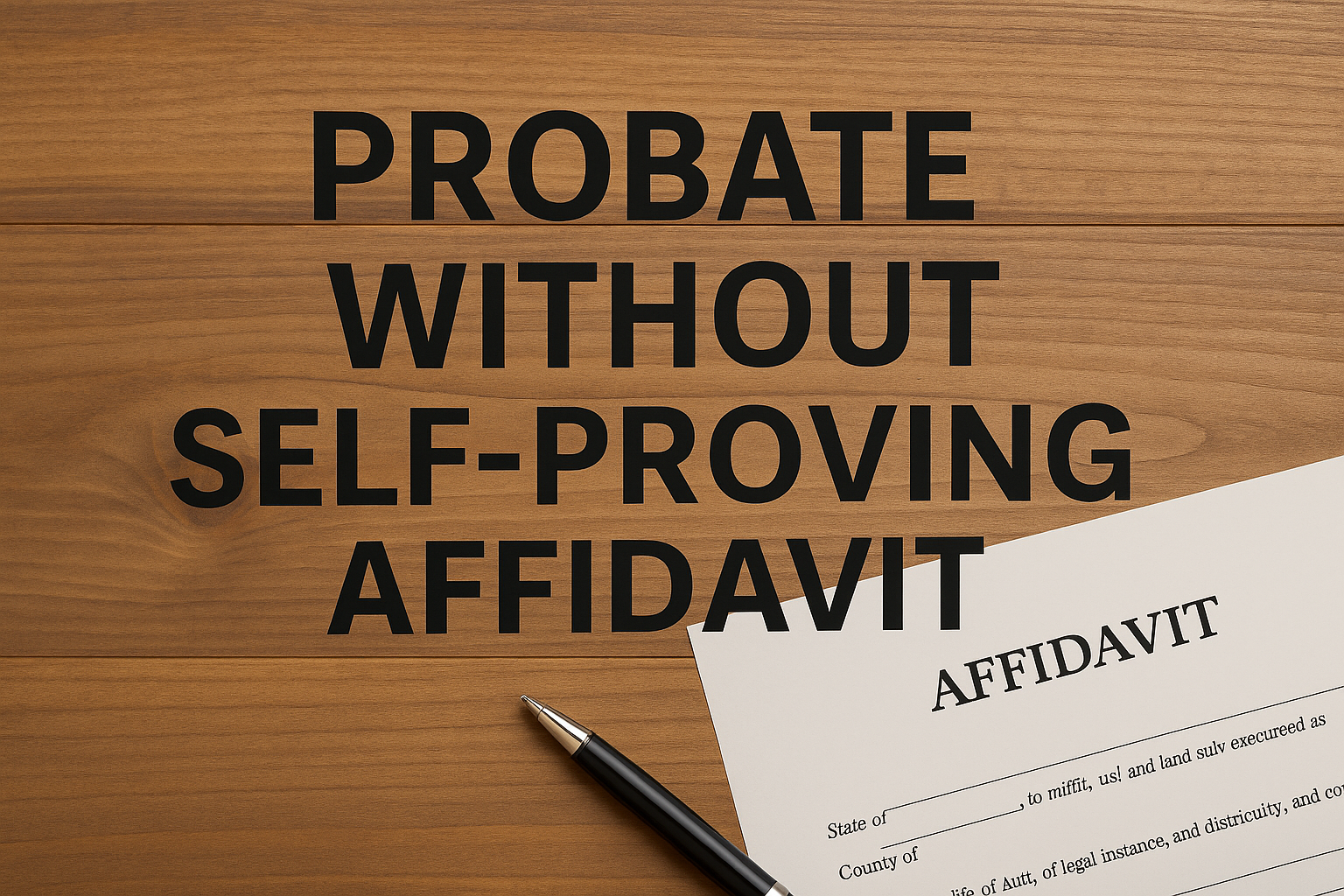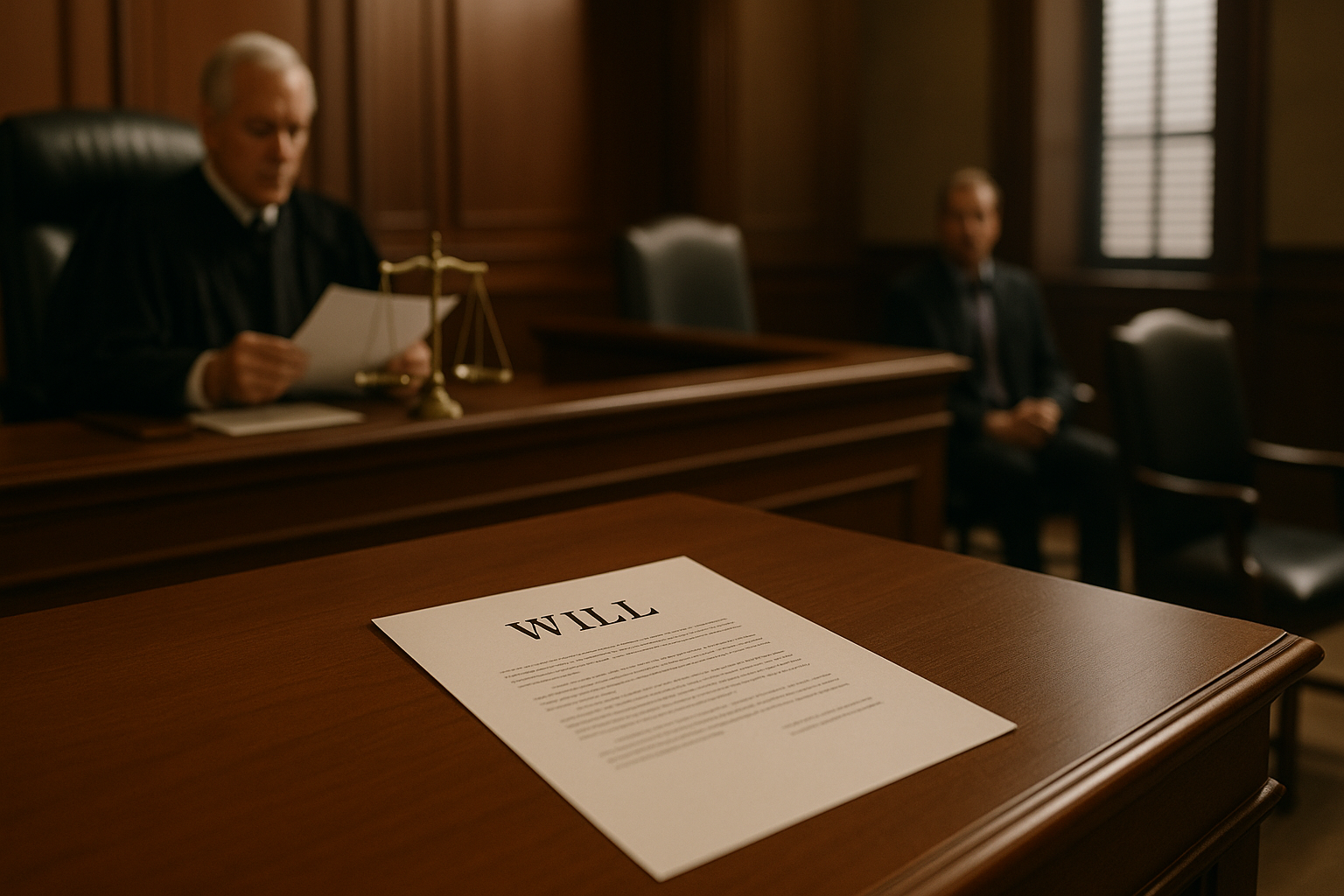In New York, a self-proving affidavit is a notarized statement signed by the attesting witnesses—typically at the time the will is executed or shortly afterward—that affirms the will was executed in accordance with the formalities required by law. It allows the Surrogate’s Court to admit the will to probate without requiring live testimony from the witnesses, as permitted under SCPA 1406. But what happens if the affidavit was never signed and both witnesses have since passed away?
This situation arose in Matter of Lobuono, a March 2025 decision by Surrogate Nelida Malave-Gonzalez of the Bronx County Surrogate’s Court. The court had to determine whether a 1983 will could be admitted to probate despite the absence of a self-proving affidavit and the unavailability of both attesting witnesses.
The Legal Framework: SCPA 1405(4)
Under SCPA 1405(4), when all attesting witnesses are deceased or cannot be found, the court may dispense with their testimony if other evidence establishes that the will was properly executed.
In Lobuono, the petitioner submitted a collection of affidavits and facts to support probate without witness testimony, including:
- An affidavit verifying the decedent’s handwriting.
- An affidavit confirming that the signature of one of the deceased witnesses on the attestation clause matched the witness’s known handwriting.
- A sworn statement explaining where and how the petitioner found the “wet ink” conformed copy of the will—specifically, among the decedent’s important documents at her residence.
- A statement affirming that the original will could not be found despite a diligent search.
- Evidence that the will distributed the estate the same way as intestacy, which helped reinforce its authenticity and dispel concerns about motive to revoke.
- The fact that all distributees consented and there were no objections.
Together, these satisfied the requirements of SCPA 1405(4) and persuaded the court to admit the will to probate without live witness testimony.
Why This Matters
Practical Insight: If you’re probating a will without a self-proving affidavit and the attesting witnesses are deceased or unavailable, focus on building a detailed evidentiary record. This may include handwriting exemplars, affidavits from individuals familiar with the decedent’s and witnesses’ handwriting, and sworn statements explaining the will’s discovery and storage. Courts may accept substitute proof if the surrounding circumstances support the will’s authenticity and proper execution.
Caution: This process is not automatic. The court weighs the credibility of the evidence and whether the will appears to be genuine. The absence of objections and the fact that the will mirrors intestate distribution helped the petitioner in Lobuono.
Takeaway: It’s always best to execute a self-proving affidavit when signing a will. But if you're stuck without one, Matter of Lobuono shows that probate is still possible—with the right evidentiary support.
- Wills: Self-Proving Affidavit
- Estate Administration
- Estates
- Matter of Lobuono
- New York
- NY SCPA 1405(4)
- NY SCPA 1406
- Probate
- Surrogate Nelida Malave-Gonzalez
- Wills
- Witnesses Deceased
Hani Sarji
New York lawyer who cares about people, is fascinated by technology, and is writing his next book, Estate of Confusion: New York.



Leave a Comment